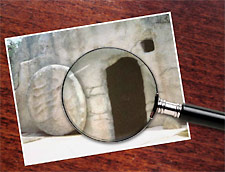Ever since David Hume proclaimed that "no human testimony can have such force as to prove a miracle and make it a just foundation for any such system of religion", the subject of miraculous events has been of fascination to philosophers.
Have any miracles ever occurred? It would seem on the face of it that such a question can only be answered by a careful analysis of the evidence for specific cases.
Yet Hume and others argue that such inquiry is pointless from the start.
It is argued that it is impossible even in principle to have sufficient evidence for a miracle.

Moreover, even if we can establish a certain event has taken place, we can draw no supernatural conclusions, hence we cannot establish that it is "miraculous' in any interesting sense.
Rather than defend the occurrence and significance of any particular miracle, my focus will be on these preliminary philosophical issues.
My purpose is to defend the appropriateness of empirical investigation of miracle reports by arguing that we can, in principle, have sufficient evidence to establish the occurrence of a miracle, and that such knowledge can provide evidence for religious beliefs.
The rest of Roger White’s essay can be downloaded here:
Miracles and rational belief























